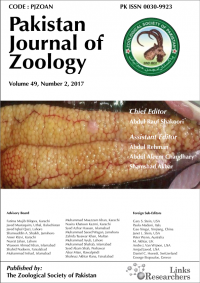This study investigated the effect of Mastacembelocleidus heteranchorus (monogenea), Unio pictorum (glochidial larvae) and D. spathaceum (digenetic trematode) on the weight and sex of the host fish (Mastacembelus mastacembelus) by using some data mining algorithms. During this study, the fish weight (g) and length (mm) of 122 fish were measured. In addition, the distribution of M. heteranchorus and U. pictorum in each lamella of the gills and the distribution of D. spathaceum in the right and left eye lenses were evaluated. Two different algorithms (MARS and CHAID) were examined to evaluate the total fish weight, fish size, sex, season, station and recorded ectoparasites variables in host fish. In the study, MARS algorithm was formed to evaluate the effects of M. heteranchorus, U. pictorum recorded in the gills, and D. spathaceum recorded in eyes selected as independent variables. To estimate the MARS algorithm, goodness of fit statistics were examined. In order to determine the most suitable for each individual MARS model, different second, third and fourth-degree interactions were tried. In order to determine the most suitable model, it was taken into consideration that the cross-validity coefficient (GCV), square of error squared mean (RMSE) and Akaike Information Criteria (AIC) statistics were the minimum, the determination coefficient (R2) and Adj R2 values were maximum. In order to estimate the parasitic distribution of the host fish according to the total weight, the two different MARS (Multivariate Adaptive Regression Splines) model R2 values respectively; 0.973 and 0.989; Adj. R2 values were 0.967 and 0.985, RMSE values were 20.823 and 13.598, and AIC values 329.777 and 284.570 were found.









